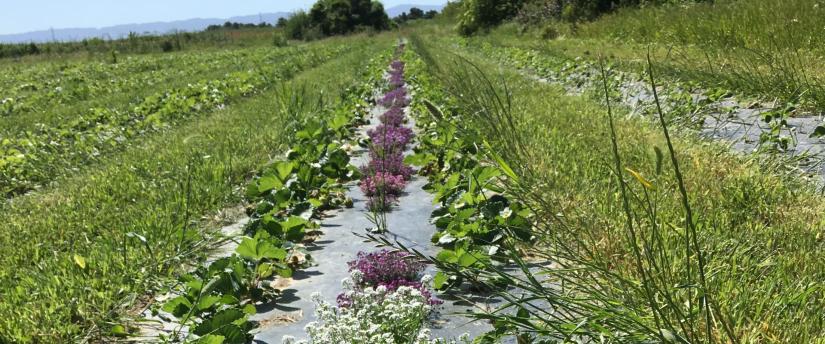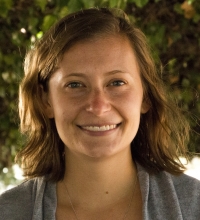
Delta Science Fellowship 2017-19
Fellow: Jessica Rudnick, Doctoral Student, University of California, Davis
Research mentor: Mark Lubell, Environmental Science and Policy, University of California, Davis
Community mentors: Michelle Leinderfelder-Miles, UC Agriculture of Natural Resources & Ben Wallace, Contra Costa Resource Conservation District
Background
In the Sacramento-San Joaquin Delta, agriculture is the dominant land use. Improved soil health management displays substantial potential to provide environmental benefits, such as carbon sequestration, water retention and filtration, subsidence reversal, and help agriculture become more resilient to climate change. Understanding the factors influencing farmers’ adoption of soil management practices is critical to building collaborative solutions to current and future climate and water challenges.
Project
This project investigated and analyzed the major factors contributing to decision-making and adoption of soil management practices by farmers in the delta. In this project, Rudnick applied a mixed-methods approach to better understand what drives farmers’ decisions. To collect these data, the fellow used semi-structured interviews with farmers and relevant agricultural stakeholders, and participant observations at a number of public meetings and grower outreach events, including water coalition meetings, farmer field demo days, UC Davis outreach days, industry group conferences.
Progress/Results
The study found that for delta farmers, agronomic benefits such as crop yield and quality, soil fertility, and return on investment are some of the most important factors farmers consider in their decisions about adopting new soil and nutrient management practices. The most frequent barriers to adoption of new practices are uncertainties related to the impact on farming operations, costs, and regulations.
Farmers seek information from many different sources to inform their adoption decisions about soil and nutrient management practices, but the study found that private consultants known as pesticide control advisors, who often represent chemical companies, are often the most important sources of information after farmers’ own past experience.
Rudnick is now working to move beyond descriptive survey results to develop more complex predictive models that allow researchers to understand how multiple farm operation characteristics as well as farmer demographics and behavioral characteristics interact and predict adoption behaviors of farmers
Management Applications
In this project Rudnick has defined several key takeaways for policy makers, extension, and outreach, that have been communicated to stakeholders, community partners, and academic audiences through a variety of conferences and outreach events over the past year.
For example, she suggests that extension and outreach should evaluate how educational materials and workshops address areas where farmers identify uncertainty about best management practices, which include how practices may impact crop yields, the return on investment of a practice (including timeframe), and how effective the practice will be at delivering desired conservation outcomes (i.e. improved nitrogen management, soil carbon sequestration, water quality benefits). In addition, harnessing the wide reach of pesticide control advisors could provide leverage to communicate research and conservation practices to a broader farming population
Publications and Presentations
Rudnick, J (2018). Barriers to adoption of improved management practices. California Department of Food and Agriculture Fertilizer Research Education Program Annual Meeting. Seaside, CA, October 2018.
Rudnick, J (2019). Understanding uncertainty in farmer decision-making in the context of climate change and nutrient management. 3rd Annual Agriculture and Climate Change Conference. Budapest, Hungary. March 2019.
Attachments
 Jessica Rudnick (Delta Science Fellow)
Jessica Rudnick (Delta Science Fellow)
